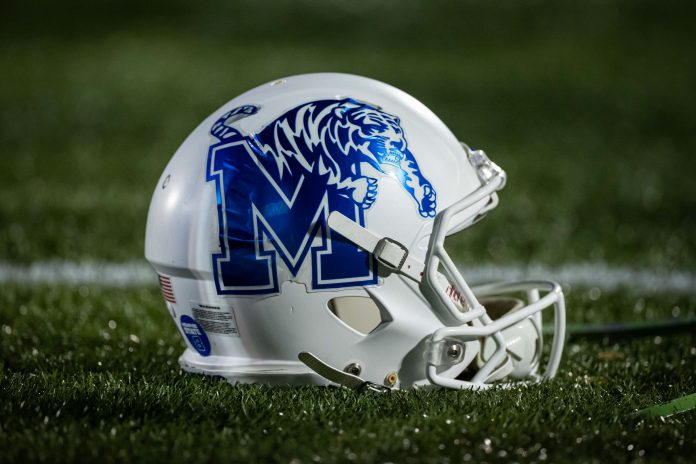Houston, BYU, Cincinnati, UCF, and SMU have made the leap to the Power Five in recent years — is Memphis up next? After signing a significant NIL deal with FedEx, the odds are far higher.
FedEx, Memphis Strike on Lucrative NIL Deal
The Memphis-based company has pledged $5 million a year over the next five years to the Tigers, with the money specifically going to football, men’s and women’s basketball, and other women’s athletic programs.
“This is a massive example of what NIL was intended to be and can be, but it’s done the right way with the right kind of infrastructure from a Fortune 50 (500) company to hometown student-athletes,” Memphis athletic director Laird Veatch said in an interview with The Commercial Appeal. “Really, I don’t think there’s another deal that we’re aware of that is this size or the scope across multiple programs and across multiple years.”
This isn’t the first or only connection between FedEx and the university. Founder Fred Smith and his family donated $50 million to the program in December, allowing the Tigers to move forward with a $220 million stadium renovation, which should help attract recruits and appeal to prospective Power Five conferences.
The state’s largest employer has also committed to a 50% match clause, according to Veatch, who said Memphis will begin campaigning for an additional $2.5 million per year. “We believe that is very attainable based on where we’ve been in the past. … [The deal] does elevate us to a highly competitive NIL space, and it’s something that’s sustainable at the same time. If you ask many athletic directors around the country, I don’t know that they’d be in a position to say that.”
According to The Commercial Appeal, Memphis has actively discussed conference realignment with Big 12 leaders since at least February 2022. The conference added Cincinnati, UCF, Houston, and BYU in 2021, with those schools playing in the league for the first time last season.
While the Tigers have pushed for a move to the Big 12 dating back to 2016, their most recent fervent push for a “promotion” comes on the heels of SMU leaving the AAC for the ACC.
NIL collectives are privately controlled, meaning they do not have to report their annual fundraising or how those funds are spent. However, NIL NCAA has estimated funding for each program based on the support they’ve received from boosters historically.
The average Power Five program was listed at $9.8 million for the 2023-2024 season, with the average Group of Five school sitting at $1.5 million.
As a private institution, there was no estimation for BYU, but Houston ($2 million), Cincinnati (nearly $4 million), and UCF ($3.3 million) had similar numbers to Memphis ($2.6 million). SMU is also private, but in April 2022, boosters combined to form the Boulevard Collective, intending to spend $3.5 million annually in NIL compensation to the school’s athletes.
Here are some of the biggest NIL deals from the Group of Five-to-Power Five programs:
- This February, UCF alumnus and blockchain pioneer Taylor Gerring pledged $5.5 million to the athletics department, as well as $1 million to the program’s NIL collective.
- Last August, BYU’s official NIL collective, The Royal Blue, launched a program to benefit every 2023 football player (123 total), both financially and academically, though no further details were provided.
- A year ago, Houston NIL collective LinkingCoogs landed a $1 million team-wide partnership for the football program just four months after inking a six-figure deal for the basketball team.
While all of those deals are extremely beneficial to their programs and their athletes, they pale in comparison to Memphis’ agreement with FedEx, especially in longevity.
With a revamped stadium and a lucrative NIL deal inked, the Tigers have proved themselves as an attractive option for the Big 12 (or another Power conference). They’ve also backed it up on the field, with their last losing season coming in 2013, their first in the AAC, and owning two conference title belts (2014 — tied with Cincinnati and UCF — and 2019).
Additionally, it should help Memphis compete for a spot in the expanded 12-team College Football Playoff. In the new format, the five highest-ranked conference champions will receive automatic bids, with the other seven slots going to the remaining highest-ranked teams.
As a Group of Five team, the Tigers would have to dominate their competition to even receive consideration in the rankings. So, a move up in competition would be their best shot.
KEEP READING: Memphis Tigers’ Top 10 Returning Players in 2024
Yet, even if they stayed in the AAC, the FedEx deal and stadium renovations should lure more recruits and transfers (at least higher-quality talents) to the program, boosting their chances overall.
The future of Memphis football was already bright. But now, FedEx will help deliver the program into a new era.
College Football Network has you covered with the latest news and analysis, rankings, transfer portal information, top 10 returning players, the 2024 college football season schedule, and much more!


